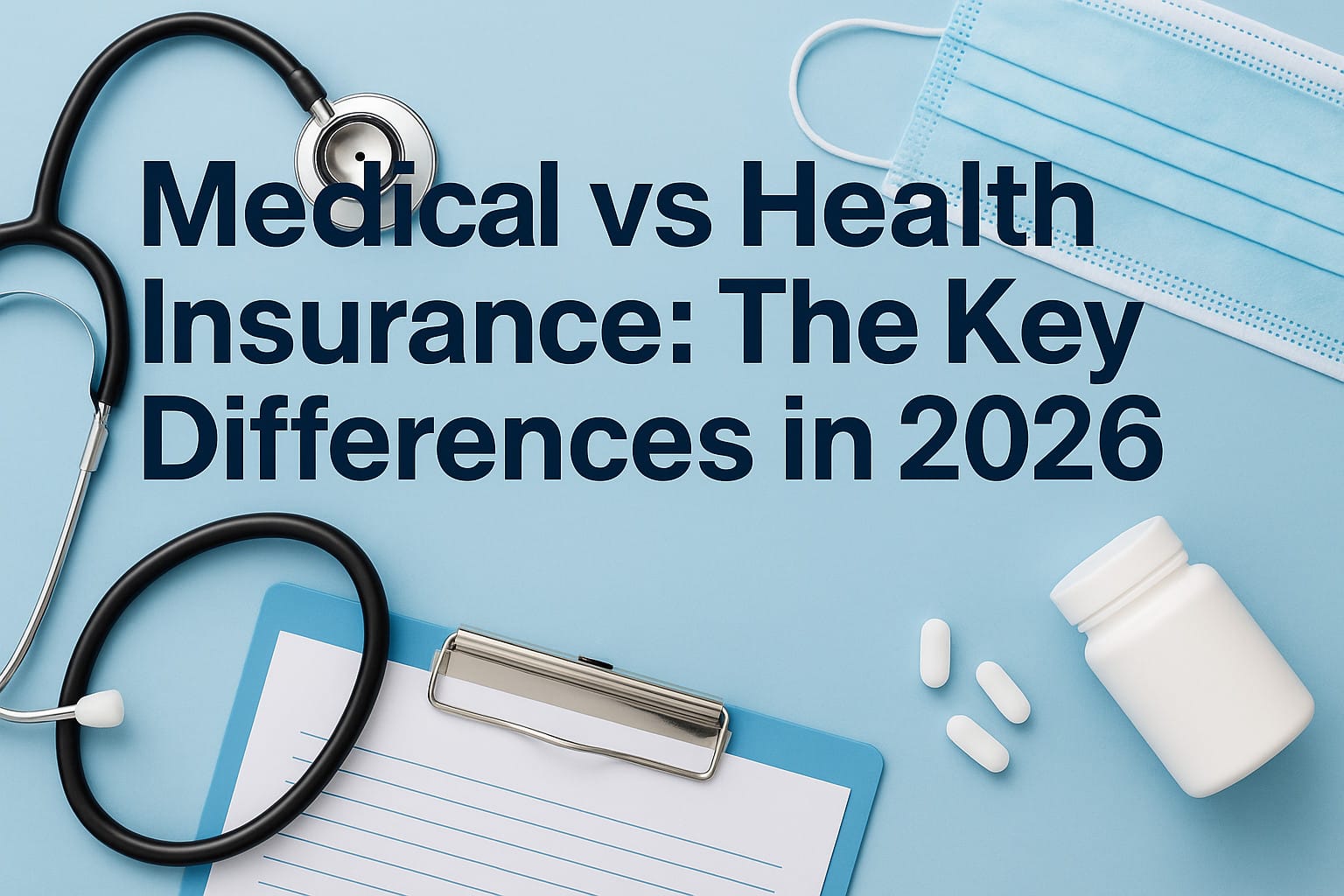In the UAE, health insurance is essential for everyone, whether you are an expatriate or a citizen. It’s vital to understand terms like “co-payment” and “deductible” to make informed decisions about your health insurance. These two words may sound alike, but they change how much money you have to pay out of your pocket. In this blog, we will examine the differences between a co-payment and a deductible in health insurance in the UAE, their operational mechanisms, and key considerations when selecting a health insurance plan.
What is a copay?
A co-payment or copay in health insurance means that you share the cost of medical bills with your insurance company. You pay a part of the total cost, and the insurance company covers the rest. How much you pay depends on the specific policy you have.
In a normal insurance plan, the insurance company usually pays the full bill when you make a claim. However, with a co-pay, you agree to pay a portion of the bill. Many health insurance companies in the UAE offer plans with a co-pay option. The amount you pay is usually fixed based on the service, medicines, or treatment you need.
For example, if your insurance plan has a 15% co-pay and your medical bill is AED 8,000, you would pay AED 1,200, and the insurance company would cover the remaining AED 6,800.
How does copay work in a health insurance policy?
Here’s how the co-pay works in your health insurance plan:
- Cashless basis: If you go to a hospital that is part of your insurance company’s network, the insurance provider will directly pay the hospital, and you only need to pay the co-pay amount.
- Reimbursement basis: If you choose a hospital outside the network, you will need to pay the full bill first and then request reimbursement from your insurance company for the amount they cover.
There are two options for co-pay with your health insurance:
| Option | Co-pay | Insurance premium | What it means |
| High co-pay and lower premium | Higher co-pay (you pay more per visit) | Lower monthly premium | Pay more for each healthcare service but less monthly. |
| Low co-pay and higher premium | Lower co-pay (you pay less per visit) | Higher monthly premium | Pay less for each visit but more each month. |
What is deductible?
A deductible in health insurance is the amount you pay yourself before your insurance starts covering your medical bills. Here’s how it works: first, you pay all your healthcare costs until you meet your annual deductible. Once this amount is paid, your insurance covers part of your medical expenses for the rest of the year. The deductible resets every year. Insurance companies include deductibles to reduce small claims, encourage responsible healthcare use, and share the risk with policyholders.
Copays don’t always count toward your deductible, and whether or not they do depends on the terms of your insurance plan. This is why it’s important to carefully review your plan’s details to understand your responsibilities for both copay and deductible amounts.
For example, if your out-of-pocket maximum is AED 5,000, and you’ve already paid AED 2,000 towards your deductible, any further expenses will contribute toward reaching that AED 5,000 limit. Once you hit that amount, your insurance will cover all additional costs.
How does deductible work in a health insurance policy?
Here’s how deductibles work in your health insurance plan:
- Pay the deductible: You cover all your healthcare costs until you’ve paid the deductible for the year.
- Insurance helps after: Once you’ve paid the deductible, your insurance will pay part of your medical bills for the rest of the year.
- Resets annually: At the start of each year, your deductible resets to zero.
Insurance companies add deductibles to reduce small claims, promote careful healthcare use, and share the costs with you. Factors affecting your deductible include age, health, pre-existing conditions, and lifestyle.
Co-pay vs deductible in health insurance in the UAE
The top 10 differences between co-payment and deductible in health insurance in the UAE:
| Feature | Co-payment | Deductible |
| Definition | A fixed amount you pay for each medical service. | The total amount you pay before insurance starts helping. |
| Payment frequency | Paid every time you visit a doctor or get a service. | Paid once per year until the deductible is met. |
| Amount | A small, fixed fee (e.g., AED 50 per visit). | Larger amount (e.g., AED 2,000 for the year). |
| When you pay | Paid at each medical visit or service. | Paid at the start of the year or when medical costs start. |
| Cost-sharing | You share part of the cost with the insurance provider at every visit. | You pay all costs until the deductible is met, and then insurance shares the rest. |
| Applies to | Routine services like doctor visits or tests. | This applies to the total medical expenses for the year. |
| Impact on premium | Co-pay plans usually have lower monthly premiums. | Deductible plans can have higher monthly premiums. |
| Out-of-pocket costs | Smaller, more frequent payments over time. | Larger, one-time payment at the beginning of the policy year. |
| After reaching limit | You continue paying a co-pay for each visit. | After reaching the deductible, insurance pays most of the costs. |
| Best for | People who need frequent doctor visits or treatments. | People who expect fewer medical expenses in a year. |
When to choose plans with co-payment or deductible?
Deciding between a co-payment and a deductible depends on your healthcare needs and financial situation. Here’s a simple guide to help you choose the best option:
1. Look at your healthcare needs
- Co-payment: Ideal for individuals who frequently visit the doctor or require regular care, such as check-ups. You’ll pay a small, fixed fee each time.
- Deductible: This option is best suited for those who don’t anticipate incurring many medical expenses and prefer to pay a larger amount annually.
2. Think about your budget
- Co-payment: Usually means lower monthly payments, but you’ll need to pay a fixed amount every time you see a doctor.
- Deductible: You may pay more each month, but once you meet the deductible, your costs will be significantly lower for the remainder of the year.
3. Consider Your Financial Situation
- Co-payment: Easy to predict, but if you visit the doctor often, these small payments can add up.
- Deductible: You’ll pay more at once, but it could save you money if you don’t need frequent medical care.
What’s the bottom line?
When choosing health insurance, understand the differences between co-payments and deductibles in the UAE. Co-payments are beneficial if you visit the doctor frequently, as you only pay a small, fixed fee each time. Deductibles are better if you don’t expect many medical expenses, as you pay more upfront before the insurance helps with costs. Your decision will depend on your health needs, budget, and whether you prefer paying smaller amounts regularly or a larger amount annually. Both options can work well, depending on what suits you best.
For those seeking more clarity and personalised advice, platforms like InsuranceMarket.ae can help you compare options and find a plan that perfectly fits your needs.
Frequently Asked Questions (FAQs):
Q. Is a copay plan better than a high deductible plan?
Copay plans usually have lower deductibles than high-deductible plans. They are good if you want to budget your medical costs and know how much you’ll need to pay each time you visit the doctor.
Q. What is the difference between deductible and out-of-pocket costs?
A deductible is the amount you pay for healthcare services before your insurance covers the costs. You must pay the most out-of-pocket maximum for in-network care in a year. After reaching this limit, your insurance will cover 100% of the costs. Both affect how much you pay and how much your insurance helps with your medical bills.
Q. Can I have both a co-payment and a deductible in my insurance plan?
Yes, many insurance plans in the UAE include both. You may have a deductible for major treatments and a co-payment for regular doctor visits.







